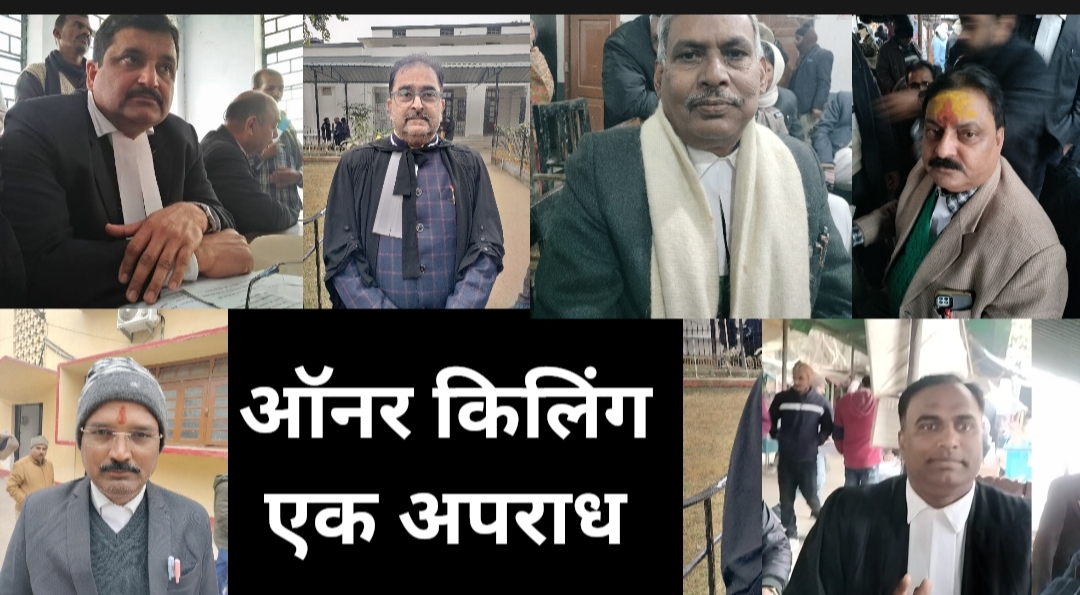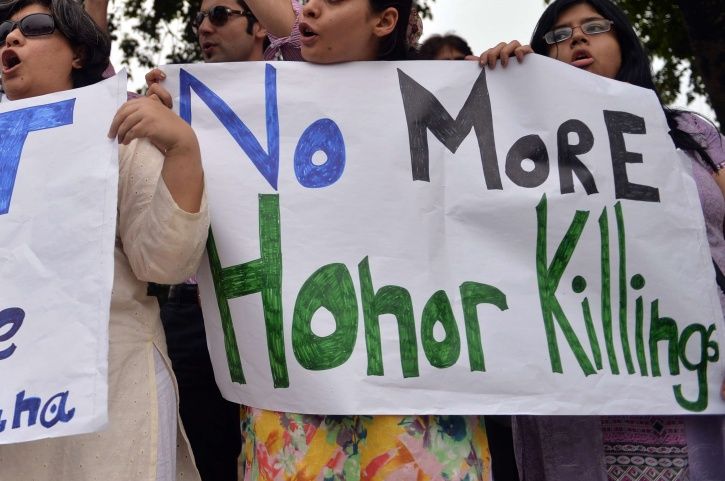
Inter- caste or inter-religion relationship and refusal to enter into an arranged marriage are common triggers of “honor killing ", said senior advocate Rajeev Shankar Verma adding that there should be stringent laws and awareness to minimize such incidents.
Sagar Suraj || BNM
MOTIHARI: Back to Back killing to protect so called family honour, has sparked outrage in this bordering district of Bihar’s East Champaran.
On the intervening night of Tuesday-Wednesday, a minor 'love bird' committed suicide in Kodha village under Chiraiya police station. Before hanging them self, lover Amit filled his girlfriend Rani's 'Maang' with blood making an incision on his thumb.
Both were from the same village, belonged to different castes and near adult. As family prestige was coming in the way of their marriage, they resolved to end their life hanging themselves with a branch of mango tree.

A day before this, in Siswa Kharar village of Kalyanpur police station, a minor girl was murdered by her father, brother and uncle. This girl had committed the crime of falling in love with a boy from the same village.
On 13 January last, a father named Vinod Prasad killed his own daughter in Kotwa village because she was allegedly having a relationship with her lover even after marriage. Police acted properly in all cases.
These incidents are heartbreaking and disturbing, highlighting the darker aspects of societal pressure and the desire to protect family prestige. The concept of "Honor killing" is rooted in traditional and cultural beliefs, where the perceived dishonor brought by a family member, often a woman, is punished by death.
In many cases, honor killings are connected to issues like caste, religion, and social hierarchy. The fact that Amit and Rani of Chiraiya belonged to different castes, despite being from the same village, was enough to spark opposition to their marriage. Similarly, the minor girl in Siswa Kharar village was murdered for falling in love with a boy from the same village.
Apart from this, the brutal murder of children by their own relatives for prestige, which is happening in this district, has become a hot topic of discussion in the district. As a result, considering it necessary to investigate the mental state and law behind these incidents, advocates of district Bar were talked to.
“Inter- caste or inter-religion relationship and refusal to enter into an arranged marriage are common triggers of “honor killing ", said senior advocate Rajeev Shankar Verma adding that there should be stringent laws and awareness to minimize such incidents.
General Secretary of district bar association (DBA) Rajeev Dwivedi aks Pappu Dubey while talking to BNM said that, It's essential to address the underlying societal issues that lead to these heinous crimes. Education, awareness, and stricter laws can help prevent such incidents and protect individuals from violence and gender discrimination.
Kanhaiya Singh, former general secretary of DBA told that the lack of a specific law to deal with honour killing is a significant concern. Law-enforcement agencies are forced to charge suspects under separate provisions of the IPC, depending on the scale of the crime.
Former DBA General Secretary Narendar Dev is of the views on the issues that, the issue of honour killing is deeply rooted in India's feudal society, marked by caste wars, untouchability, and patriarchal mindsets. Politicians must take a firm stance against honour killing, prioritizing the protection of citizens' constitutional and democratic rights over vote-bank politics.
Advocate Manoj Singh said, a session’s court in Karnal of Hariyana awarded the death penalty to five men for killing a couple, who had married against the diktats of a khap panchayat. This judgment marks a significant step towards addressing honour killings. Motihari police administration should come forward to protect such couple.
Advocate Vivekanand Shrivastava, said that the existing laws are enough to tackle such crime. The Law Commission's recommended bill, the Prohibition of Interference with the Freedom of Matrimonial Alliance Bill, is still pending.
Over honour killings, the Supreme Court issued a notice to the centre and eight states, seeking explanations for the steps taken to prevent such incidents. The government has decided to constitute a Group of Ministers to consult with states and explore the possibility of enacting a special law to tackle honour killings.
On this growing concern experts are, however, divided on the need for a specific honour killing law. Some argue that existing laws are sufficient if implemented properly, while others believe that more stringent provisions are required to address the menace of honour killings.
Related Posts
Post Comment
राशिफल
Live Cricket
Recent News
Epaper
YouTube Channel
मौसम







.png)










Comments